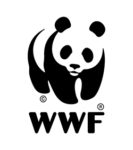
WWF Zambia Country Office
WWF Zambia is seeking the services of a national Livelihoods and Value Chains Consultant to participate in a project development team for two projects for the Global Environment Facility, and deliver a report on livelihoods and value chains-related to be used in the project development process.
1. Background
WWF-US as a Global Environment Facility (GEF) Agency is supporting the Government of Zambia, WWF Zambia and the International Crane Foundation (ICF) to develop two projects for presentation to the GEF for endorsement by the GEF Chief Executive Officer as part of the Eighth Replenishment Cycle (GEF-8). The two projects will be designed in support of Zambian government priorities, and in accordance with WWF and GEF standards, and are as follows:
- The Kafue Flats Climate Resilience and Adaptation Project (or “KaF-Adapt”), to be funded through the Least Developed Countries Fund (LDCF)
- The Kafue Flats Wildlife, Habitat, Health and Livelihoods Project (or “KaF-Wild”), to be funded through the GEF Trust Fund, as a country project under the global Wildlife Conservation for Development (WCD) Integrated Programme.
The Livelihoods and Value Chains Consultant will participate, together with other national and international consultants, and staff from WWF-US, WWF-Zambia, the International Crane Foundation (ICF) and the Government of Zambia in a joint Project Development Team (PDT). The PDT will be responsible for the development in parallel of both the KaF-Adapt project and the KaF-Wild project, and will guide the joint project development process based on an approved workplan. The two projects will have complementary objectives and will be designed for implementation in the same geographical area – the Lower Kafue Basin – and over the same five-year period.
2. Objectives of Consultancy
To develop a Livelihoods and Value Chains Report covering, for both projects: (i) Baseline economic activities and value chains; and (ii) Potential for climate-resilient, sustainable and/or nature-based livelihoods and enterprises. The Consultant will also produce inputs into project development process as required, for both the KaF-Adapt project, and the KaF-Wild project.
3. Tasks and Responsibilities
a) Participate in fortnightly joint Project Development Team meetings online (or at WWF Zambia office in Lusaka) for both projects.
b) Accompany two field missions in the Lower Kafue Basin project site, visiting a wide range of stakeholders in the seven chiefdoms of the Kafue Flats Game Management Area (GMA), including a visit to the southern bank of the Kafue River and Nkala GMA.
c) Analyse value chains based on economic activities in the project site, including farming, cattle- herding, fishing and fish-selling, charcoal making, feedlots and dairies, agri-processing, conservation and tourism work.
d) Collate available information on past hunting quotas and revenues in the Kafue Game Management Area, including records of Community Resource Boards where available.
e) Conduct an analysis of illegal poaching activities and game meat supply chains between the Kafue Flats and Lusaka, based on existing secondary sources, including the estimated scope and scale of trade.
f) Through field missions, interviews and focus group discussions, identify opportunities for new climate-resilient and/or nature-based opportunities for livelihoods, cooperatives, micro and small enterprises, including specific opportunities for women (in collaboration with Gender Consultant) and youth,
g) Investigate the potential for value addition to cleared biomass from invasive alien vegetation in the Kafue Flats, especially Mimosa pigra, including eco-briquettes and extraction of chemicals for leather tanning.
h) Investigate potential for community infrastructure in Kafue Flats GMA in support of livelihoods, including processing of crops and forest products; manufacture of eco-briquettes from invasive biomass; fodder production and dairy feedlots; abattoir and cold storage facilities; fish smoking and freezing; production of livestock by-products.
i) Work with WWF Zambia staff to provide maps of target communities for particular activities, and with Lead and Gender Consultants on figures for target numbers of project beneficiaries, including disaggregation of beneficiaries in terms of gender (and any other relevant categories related to social inclusion, e.g. youth, disabled).
4. Expected Outputs
Livelihoods and Value Chains Report, covering both projects (40-50 pages):
- Part 1: Baseline economic activities and value chains (including legal and illegal supply chains) in the Lower Kafue Basin, analysing the role of producer associations and availability of support for accessing markets, finance and business development, and highlighting negative impacts of climate change, unsustainable management practices, and human wildlife conflict.
- Part 2: Potential for climate-resilient, sustainable and/or nature-based livelihoods and enterprises in the project site, highlighting specific new opportunities for women, youth, cooperative structures and communal processing / value addition infrastructure, providing indicative costings and identifying beneficiary needs for capacity development, infrastructure, finance and market access.
- Inputs into project development process as required, including design of project activities[1]; indicative costings for capacity development and construction of infrastructure; selection of beneficiaries and sites; requirements for governance structures for cooperatives; and development of indicators and targets for monitoring and evaluation of project results.
5. Skills and Experience
The consultant should:
- Be resident in Zambia;
- Hold a university degree in business, finance, social science, development studies, environmental sciences, or another related field;
- Have proven experience in small enterprise development and/or value chain analysis;
- Have previous experience working in Zambia and good comprehension of the local context of the Lower Kafue Basin;
- Provide examples of previous similar work accomplished, submitted with the application;
- Be fluent in spoken and written English.
6. Management of Work
The work will be home based, using own laptop and internet connection, with mostly online meetings, and optional travel to meetings in Lusaka at own cost. For field missions, ground transport and local accommodation (when required) will be arranged and costs covered by WWF Zambia.
The Livelihoods and Value Chains Consultant will report to the Wildlife Programme Lead in WWF Zambia, while the Lead Consultant and the WWF GEF Agency Project Manager will together assess the quality of all deliverables, and will approve deliverables for payment.
Additional technical guidance will be provided by the Project Development Team, who will support on Zambian government policies, and WWF and GEF standards. The Livelihoods and Value Chains Consultant will also coordinate closely with key staff from WWF Zambia, the International Crane Foundation and other partners as required.
The breakdown of deliverables, expected timing, and payment structure is shown below:
Deliverables
Due date
Payment structure
1. Inception Report, including detailed work plan
2. Field Mission Report, including key points from stakeholder consultations in relation to livelihoods and enterprises
Anticipated in late May to mid June 2024 20%
3. Draft Livelihoods and Value Chains Report (single report for both projects):
Part 1: Baseline economic activities and value chains
Part 2: Potential for climate-resilient, sustainable and/or nature-based livelihoods and enterprises 16 August 2024 40%
4. Final Livelihoods and Value Chains Report 4 October 2024 40%
7. Submission Requirements
All candidates interested in conducting this assignment on a consultancy basis should submit, no later than noon (Zambia time) on Wednesday 17 April 2024, a detailed application including:
An up-to-date curriculum vitae detailing the applicant’s experience in relation to the topic of the consultancy
A covering letter, summarizing a) how the applicant’s skills and experience equip them to undertake the consultancy; and b) the applicant’s proposed approach to the work
A financial proposal, in the form of a total figure in USD, to be calculated by multiplying the applicant’s daily rate in USD by the number of days the applicant estimates it will take to deliver on the proposed activities within the proposed timeline (Note: costs of field missions to be covered by WWF)
A sample of a previous livelihoods and value chains -related assignment completed by the consultant.
All applications should be emailed to [email protected], with the reference “Livelihoods and Value Chains Consultancy for WWF Zambia GEF 8 Projects”.
[1] Including specific inputs for both the KaF-Adapt project and the KaF-Wild project, as relevant.

